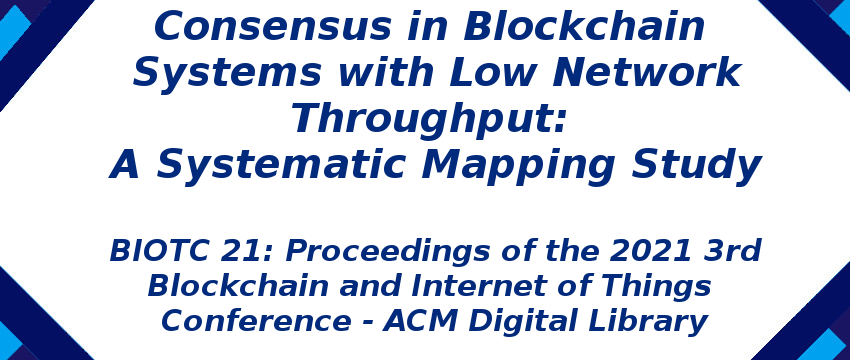Research Area: Blockchain Technology
Blockchain technologies originate from cryptocurrencies. Thus, most blockchain technologies assume an environment with a fast and stable network. However, in some blockchain-based systems, e.g., supply chain management (SCM) systems, some Internet of Things (IoT) nodes can only rely on the low-quality network sometimes to achieve consensus. Thus, it is critical to understand the applicability of existing consensus algorithms in such environments. We performed a systematic mapping study to evaluate and compare existing consensus mechanisms’ capability to provide integrity and security with varying network properties. Our study identified 25 state-of-the-art consensus algorithms from published and preprint literature. We categorized and compared the consensus algorithms qualitatively based on established performance and integrity metrics and well-known blockchain security issues. Results show that consensus algorithms that rely on synchronous network for correctness cannot provide the expected integrity. Such consensus algorithms may also be vulnerable to distributed-denial-of-service (DDOS) and routing attacks, given limited network throughput. Conversely, asynchronous consensus algorithms, e.g., Honey-BadgerBFT, are deemed more robust against many of these attacks and may provide high integrity in asynchronous events.
Keywords:
Author(s) Name: Henrik Knudsen, Jakob Svennevik Notland, Peter Halland Haro, Truls Bakkejord Raeder, Jingyue Li
Journal name:
Conferrence name: BIOTC 21: Proceedings of the 2021 3rd Blockchain and Internet of Things Conference
Publisher name: ACM Digital Library
DOI: 10.1145/3475992.3475995
Volume Information: Volume: 9, (2021)
Paper Link: https://dl.acm.org/doi/10.1145/3475992.3475995
